PENGUIN  CLASSICS
CLASSICS
TOMORROW IS NOW
ELEANOR ROOSEVELT s life ( 1884 1962 ) spanned the crises the nation faced as it confronted two world wars, the Great Depression, the Cold War, the birth of the United Nations and the human rights movement, and the resurgence of intense debates over civil rights, civil liberties, multilateralism, and feminism. She led an unparalleled public life. Although most well-known for her work as the nations longest serving first lady ( 1933 1945 ), Roosevelt developed a remarkable career in journalism. She hosted political roundtables on radio and for television and delivered more than fifty public lectures a year for more than twenty years. Her nationally syndicated column My Day appeared in the nations newspapers six days a week from 1936 to 1962 . A prolific author, she wrote more than articles and twenty-seven books, including a bestselling three-volume autobiography. Tomorrow Is Now is her last publication. She was equally active in the diplomatic and political arenas. She served as the only woman member of the United States delegation to the United Nations ( 1946 1952 ). As chair of its Commission on Human Rights ( 1947 1950 ), she shepherded the drafting and adoption of the Universal Declaration of Human Rights. Her career in politics spanned fifty years and ranged from involvement in early labor and settlement movements to editing state and national Democratic Party publications; from coordinating party outreach to women voters to challenging the party to embrace civil and human rights. As an activist, she worked closely with the National Association for the Advancement of Colored People, the United Nations Association of the USA, and Americans for Democratic Action. She also led a Brandeis University graduate seminar in international affairs, where she urged students to examine both sides of a position, state their position, and act to implement it.
ALLIDA BLACK is executive editor of the fdrfreedoms Digital Initiative (www.fdrfreedoms.org), an educational resource on the life and times of Franklin Roosevelt. She is the editor in chief of The Eleanor Roosevelt Papers, Volumes I and II: The Human Rights Years, 19451948. She lives in Arlington, Virginia.
WILLIAM JEFFERSON CLINTON was the forty-second president of the United States. Under his leadership, the country enjoyed the longest economic expansion in history. After leaving office, he established the William J. Clinton Foundation with the mission to improve global health, strengthen economies worldwide, promote healthier childhoods, and protect the environment.
ELEANOR ROOSEVELT
Tomorrow Is Now
Introduction by ALLIDA BLACK
Foreword by WILLIAM JEFFERSON CLINTON
PENGUIN BOOKS
PENGUIN BOOKS
Published by the Penguin Group
Penguin Group (USA) Inc., Hudson Street, New York, New York 10014 , USA
Penguin Group (Canada), Eglinton Avenue East, Suite , Toronto, Ontario MP Y, Canada (a division of Pearson Penguin Canada Inc.)
Penguin Books Ltd, Strand, London WCR RL, England
Penguin Ireland, St Stephens Green, Dublin , Ireland (a division of Penguin Books Ltd)
Penguin Group (Australia), Collins Street, Melbourne, Victoria 3008 , Australia
(a division of Pearson Australia Group Pty Ltd)
Penguin Books India Pvt Ltd, Community Centre, Panchsheel Park, New Delhi , India
Penguin Group (NZ), Apollo Drive, Rosedale, Auckland 0632 , New Zealand (a division of Pearson New Zealand Ltd)
Penguin Books, Rosebank Office Park, Jan Smuts Avenue, Parktown North 2193 , South Africa
Penguin China, B Jaiming Center, East Third Ring Road North, Chaoyang District, Beijing 100020 , China
Penguin Books Ltd, Registered Offices:
Strand, London WCR RL, England
First published in the United States of America by Harper & Row, Publishers, Incorporated 1963
This edition with an introduction by Allida Black and a foreword by William Jefferson Clinton published in Penguin Books 2012
Copyright the Estate of Anna Eleanor Roosevelt, 1963
Introduction copyright Allida Black, 2012
Foreword copyright William Jefferson Clinton, 2012
All rights reserved
Nightmare at Noon by Stephen Vincent Benet. Copyright 1940 by Stephen Vincent Benet; copyright 1968 by Thomas C. Benet, Rachel Benet Lewis and Stephanie Benet Mahin. Used by permission of Brandt and Hochman Literary Agents, Inc. Any copying or distribution of this text is expressly forbidden. All rights reserved.
LIBRARY OF CONGRESS CATALOGING IN PUBLICATION DATA
Roosevelt, Eleanor, 1884 1962 .
Tomorrow is now / Eleanor Roosevelt ; introduction by Allida Black ; foreword by William Jefferson Clinton.
p. cm.(Penguin classics)
Originally published: New York : Harper & Row, 1963 .
ISBN --- 60358
. United StatesSocial policy.. United StatesRelations. I. Title.
E.R 2012
. 10973 dc
2012025137
Except in the United States of America, this book is sold subject to the condition that it shall not, by way of trade or otherwise, be lent, resold, hired out, or otherwise circulated without the publishers prior consent in any form of binding or cover other than that in which it is published and without a similar condition including this condition being imposed on the subsequent purchaser.
The scanning, uploading and distribution of this book via the Internet or via any other means without the permission of the publisher is illegal and punishable by law. Please purchase only authorized electronic editions, and do not participate in or encourage electronic piracy of copyrighted materials. Your support of the authors rights is appreciated.
Dedicated to Hillary Rodham Clinton and Melanne Verveer for their unwavering and courageous commitment to the Universal Declaration of Human Rights
Contents
TOMORROW IS NOW
Foreword
When I agreed to provide a new foreword for Tomorrow Is Now, I looked forward to reading Eleanor Roosevelts words again, reliving her passion for social justice and human rights. What I wasnt expecting from her last book, published after her death in 1962 , was how clearly relevant it remains to our current challenges at home and around the world. Much of what she has to say about race, poverty, and class; education and the changing workplace; the promise and perils of technology and the need for arms control; the importance of the United Nations, with all its limitations, and the right way for the United States to provide foreign assistance, could have been written this morning. Only an outdated phrase here and there, and the changes of the past fifty years, especially the end of the Cold War and the demise of the Soviet Union, tell us this wise, relevant, hopeful book was written fifty years ago.
Mrs. Roosevelts concerns about education, for example, could appear as a contemporary op-ed with very few changesafter five decades of stop-and-start education reform. She says the most important thing is to teach children how to think so they can deal with new discoveries and challenges with confidence, embracing change not resisting it. Her description of the far rights simmering anger over social progress and at the 1960 election of John F. Kennedy needs no explanatory footnote for any reader today, nor does her impatience with those who would limit the opportunities for women and girls in the name of tradition.

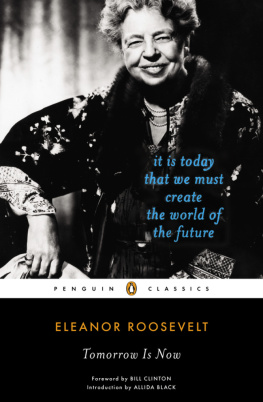
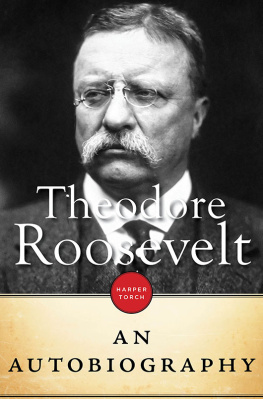
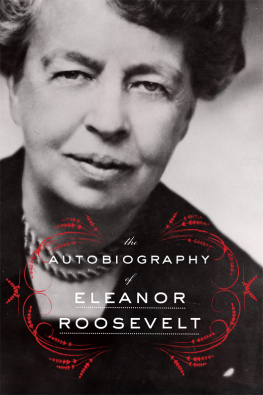
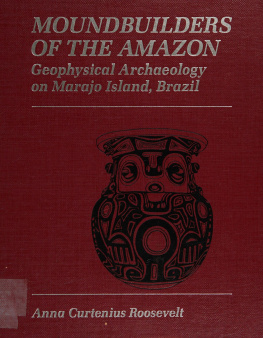

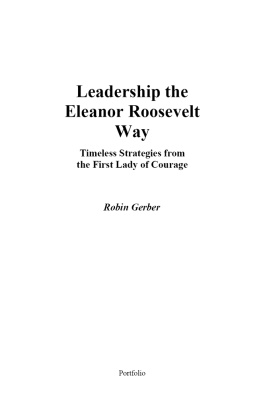
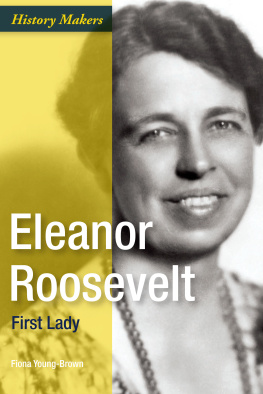
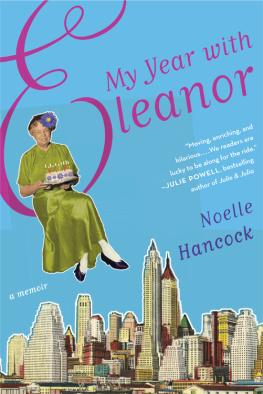
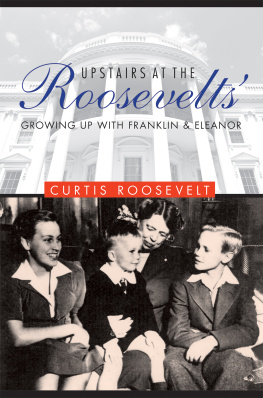
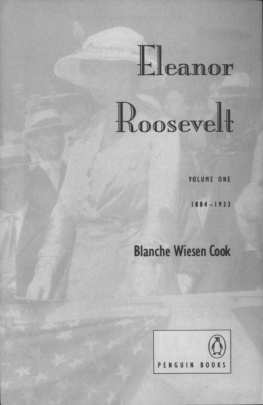
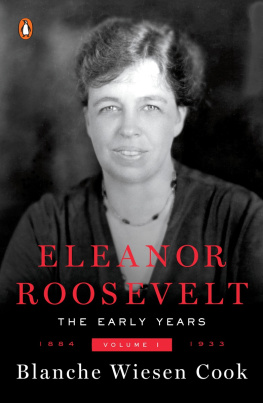
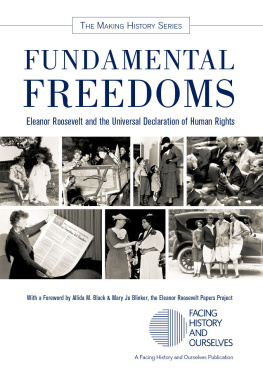
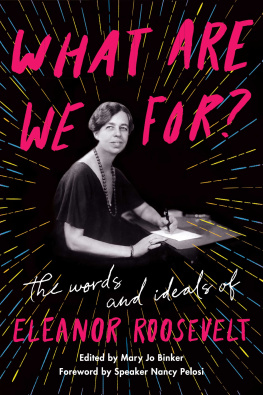
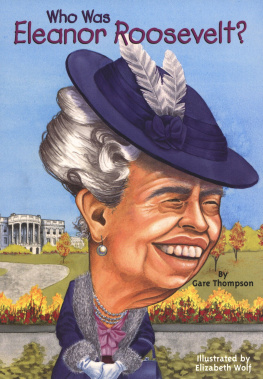

 CLASSICS
CLASSICS